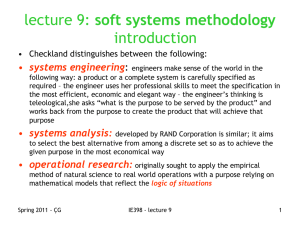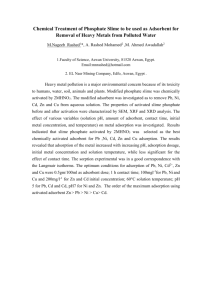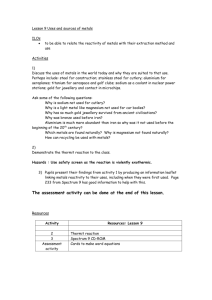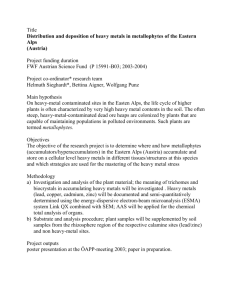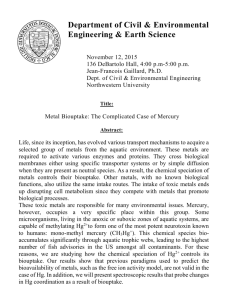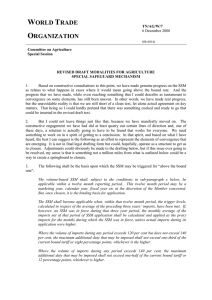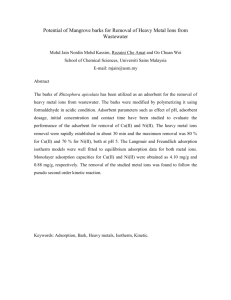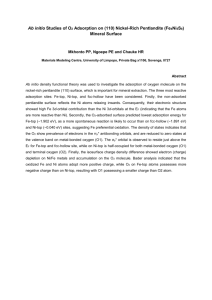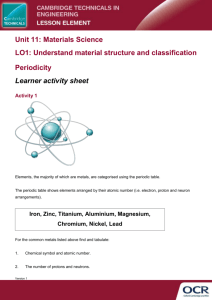Solid phase extraction of lead(II) ions by using new type synthetic
advertisement
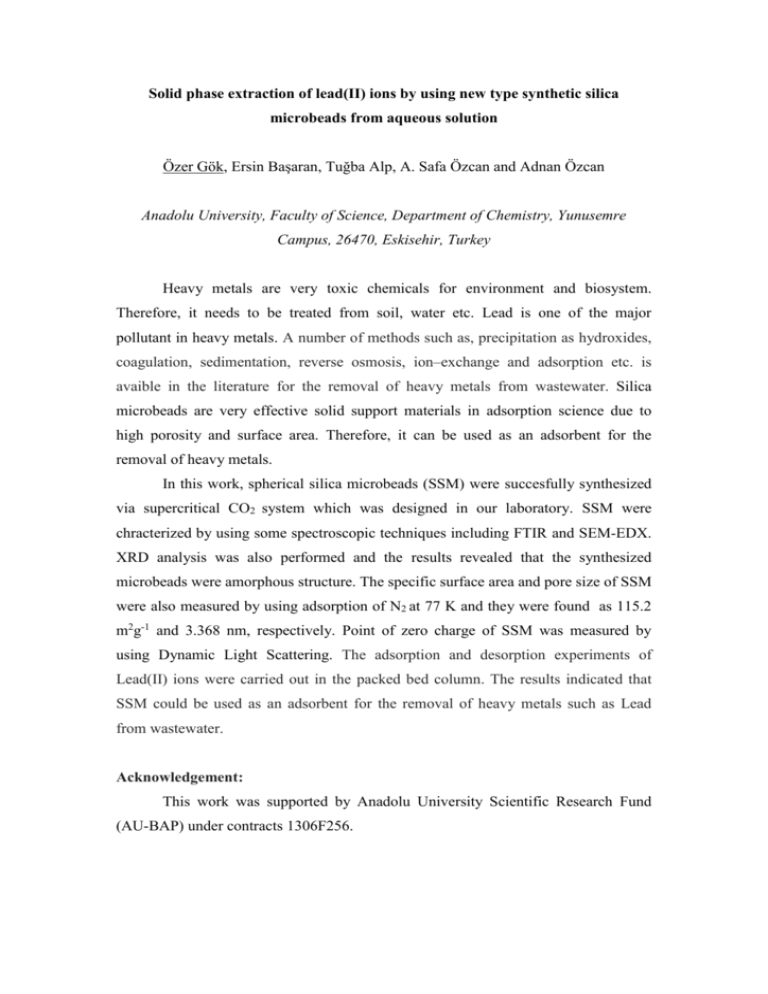
Solid phase extraction of lead(II) ions by using new type synthetic silica microbeads from aqueous solution Özer Gök, Ersin Başaran, Tuğba Alp, A. Safa Özcan and Adnan Özcan Anadolu University, Faculty of Science, Department of Chemistry, Yunusemre Campus, 26470, Eskisehir, Turkey Heavy metals are very toxic chemicals for environment and biosystem. Therefore, it needs to be treated from soil, water etc. Lead is one of the major pollutant in heavy metals. A number of methods such as, precipitation as hydroxides, coagulation, sedimentation, reverse osmosis, ion–exchange and adsorption etc. is avaible in the literature for the removal of heavy metals from wastewater. Silica microbeads are very effective solid support materials in adsorption science due to high porosity and surface area. Therefore, it can be used as an adsorbent for the removal of heavy metals. In this work, spherical silica microbeads (SSM) were succesfully synthesized via supercritical CO2 system which was designed in our laboratory. SSM were chracterized by using some spectroscopic techniques including FTIR and SEM-EDX. XRD analysis was also performed and the results revealed that the synthesized microbeads were amorphous structure. The specific surface area and pore size of SSM were also measured by using adsorption of N2 at 77 K and they were found as 115.2 m2g-1 and 3.368 nm, respectively. Point of zero charge of SSM was measured by using Dynamic Light Scattering. The adsorption and desorption experiments of Lead(II) ions were carried out in the packed bed column. The results indicated that SSM could be used as an adsorbent for the removal of heavy metals such as Lead from wastewater. Acknowledgement: This work was supported by Anadolu University Scientific Research Fund (AU-BAP) under contracts 1306F256.
